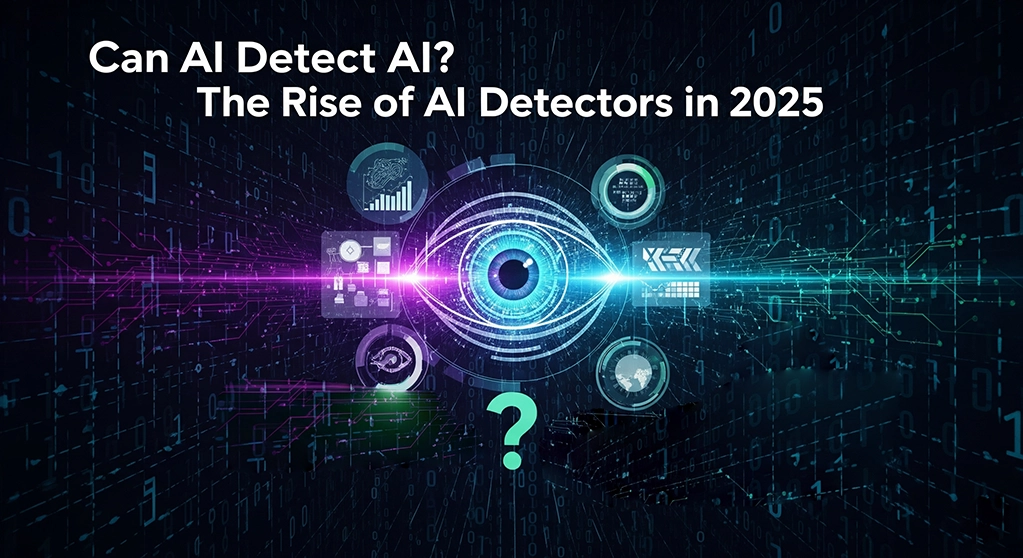
Can AI Detect AI? The Rise of AI Detectors in 2025
Can AI Detect AI? The Rise of AI Detectors in 2025
As artificial intelligence becomes deeply embedded in our digital lives, the need to detect AI-generated content is more crucial than ever. From schools to journalism and corporate sectors, AI detectors are emerging as key tools to maintain authenticity and trust in an era of generative AI like ChatGPT, GPT-4, Sora, and Midjourney.
🚨 What Is an AI Detector?
An AI detector is a software tool that analyzes content—text, images, code, or video—to determine if it was created by artificial intelligence. These tools use advanced machine learning, natural language processing (NLP), and metadata analysis to detect AI fingerprints.
⚙️ How AI Detectors Work
AI detectors typically use a combination of:
-
Perplexity & Burstiness Analysis: AI writing is often too predictable or uniformly distributed.
-
Linguistic Pattern Recognition: Identifies robotic tone, lack of emotion, or over-structured grammar.
-
Neural Network Classification: Trained on massive datasets to detect AI-like structure.
-
Image Forensics & Deepfake Detection: For visual content, they analyze pixel noise, compression patterns, and metadata.
🔥 Top AI Detection Tools in 2025
| Tool | Use | Highlights |
|---|---|---|
| ZeroGPT | Text | High-accuracy GPT detection, free to use |
| GPTZero | Education/Text | Highlights AI-generated sentences in essays |
| Originality.AI | Professional Text | Combines plagiarism & AI detection for blogs |
| Hive Moderation | Images/Videos | Detects AI-generated visuals & deepfakes |
| Sensity.ai | Deepfake Video | Used in media & law enforcement |
| AI or Not | Image | Tells if a photo is AI-generated or real |
📊 Why AI Detection Matters
-
Academic Integrity: Schools use detectors to catch students using ChatGPT for essays.
-
Online Trust: Social platforms and news outlets verify the authenticity of posts.
-
Content Marketing: Businesses avoid SEO penalties by ensuring human-written content.
-
Cybersecurity: Detection tools help fight synthetic identity fraud and deepfakes.
⚠️ Limitations of AI Detectors
While detection tools are powerful, they’re not perfect:
-
False Positives: Human-written content can sometimes be flagged incorrectly.
-
Easy Evasion: Slight rewriting or paraphrasing can bypass detection.
-
Bias Toward Older Models: Most tools are tuned for ChatGPT/GPT-4, not newer or fine-tuned LLMs like Claude or Gemini.
✅ Best Use Cases for AI Detectors
-
Teachers checking student essays
-
Publishers reviewing article originality
-
HR verifying cover letters and resumes
-
Fact-checkers analyzing viral videos
-
Developers scanning code or documentation for AI use
🔮 The Future of AI vs. AI
The battle of AI detecting AI is just beginning. As generative AI evolves, so must detection algorithms. Expect smarter tools using multimodal analysis, real-time detection, and integration with browsers and content platforms.
🏁 Final Thoughts
Whether you're a student, business owner, or content creator, AI detectors will play a vital role in maintaining authenticity, credibility, and trust online. In a world filled with AI-generated content, knowing what's real has never been more important.